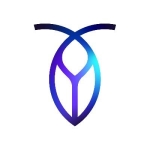The primary use case is for merging reports, merging agents, and we have implemented for business intelligence.
The most valuable feature is that it is a database.
Performance with databases is always the same, we always want more.
Stability needs to be improved. If you are creating a class test, modern machinery or working with the databases, it's always a little bit difficult to configure and keep everything working.
The addition of a workbench for managing this solution would be an improvement.
Also, some kind of technical support to help in getting better performance.
We have been working with MariaDB for ten years.
It's not very stable. It needs improvement.
We have never used the technical support.
Previously we worked with MySQL.
The initial setup is straightforward for our development environment, but for our production environment, the requirements are more. There is more work to be done, such as indexing and similar things.
The deployment for the development environment takes only ten to fifteen minutes.
It's an open-source solution.
I am an IT engineer. I am always researching the best solutions for our clients.
I work mainly with open-source solutions, such as Liferay and WordPress.
Before this product was called MariaDB it was called MySQL.
I would say that for most use cases it works fine.
Before implementing you have to understand what your use case is for.
Other databases work better for different use cases. You have to ask yourself if you want to use a relational database or a NoSQL.
I would rate this solution an eight out of ten.
















